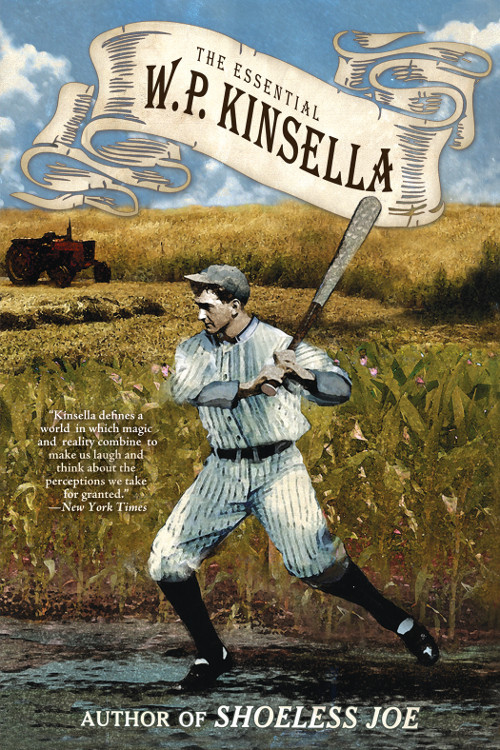THE ESSENTIAL W. P. KINSELLA exists as both anthology and time capsule

For NATIONAL POST, Richard Warnica talks with W. P. Kinsella about his new collection THE ESSENTIAL W. P. KINSELLA.
The 79-year-old author is just happy to have a new book out. His once prolific career — he averaged more than a book a year between 1977 and 1998 — has slowed in recent decades. He still writes, usually at a big oak table in his living room. And he has “at least four or five” books sitting with his agent. But he rarely publishes anymore; he believes the big players aren’t interested in his kind of work. “The midlist author,” he says, “is dead.”
If so, The Essential W.P. Kinsella (Tachyon, 432 pp, $22) exists as both anthology and time capsule. The 31 stories within were produced over more than 35 years and they reflect the sort of career Kinsella doesn’t think could exist today. He’s best known for his 1982 novel Shoeless Joe, which was adapted into the mega-hit movie Field of Dreams. But he spent most of his career cranking out moderately successful novels and short story collections.
<snip>
More than half the stories in the new book touch on baseball in one way or another, even though Kinsella himself doesn’t watch the game much anymore. He hasn’t in years. “I’m still mad about the baseball strike,” he says, referencing 1994’s season, when major league players walked off the field for 232 days, sinking that year’s World Series in the process. “I said I would never go to a game as long as any of the players who struck were still playing,” he says.
<snip>
The stories in the new collection, selected by editor Jacob Weisman, come from all phases of his career. Baseball and nostalgia feature heavily, as one might expect. There’s “Shoeless Joe Jackson Comes to Iowa,” the short story he later expanded into Shoeless Joe and “K-Mart,” a moodier piece from 1985 that uses baseball as a device to talk about adolescence, regret and even death.
<snip>
There are also several stories in the collection from his popular — and controversial — Hobbema series. Set on a fictionalized version of the Alberta reserve, the Hobbema stories, which are mostly comedic, have been criticized for appropriating First Nations voices. They have even been called racist. Read today they are, at the very least, jarring. Kinsella, for his part, describes the attempts to brand them insensitive-or-worse “idiotic.”
“They are funny and they are true,” he says. “They portray the native people in a great light and they show their sense of humour. That is how oppressed people survive.”
Some of the better, more surprising stories in the collection are the newer ones. Works like the never-before-published “Do Not Abandon Me” and “Out of the Picture” deal frankly with aging, sex and the passage of time.
“The Last Surviving Member of the Japanese Victory Society,” originally published in 2013, is a sweet piece about late-life love and loss. It is the also the last story Kinsella read to his wife, Barbara, before she died in 2012. “I always read everything aloud [to her],” he says. “She is the best editor I ever worked with.”
Read the rest of the interview at NATIONAL POST.
For more info about THE ESSENTIAL W. P. KINSELLA, visit the Tachyon page.
Cover art by Thomas Canty.
Cover design by Elizabeth Story.
